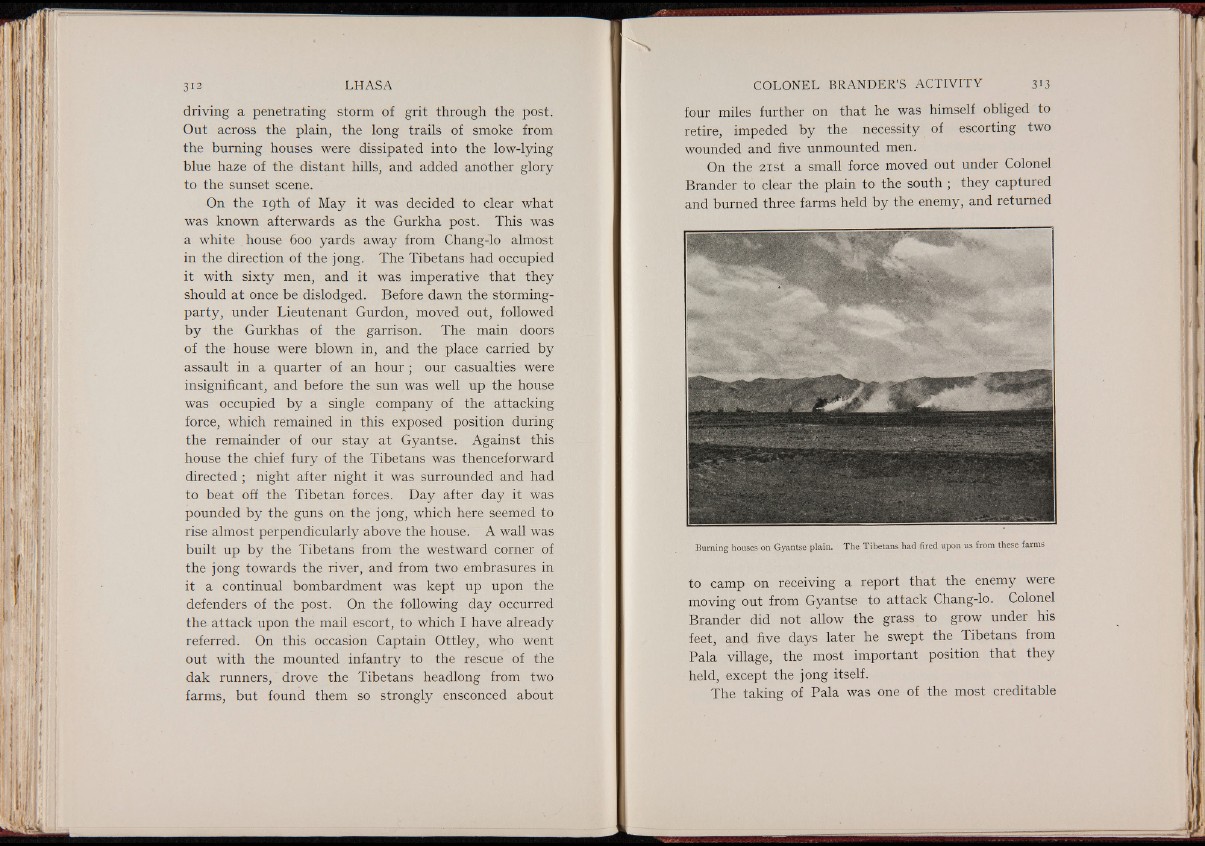
driving a penetrating storm of grit through the post.
Out across the plain, the long trails of smoke from
the burning houses were dissipated into the low-lying
blue haze of the distant hills, and added another glory
to the sunset scene.
On the 19th of May it was decided to clear what
was known afterwards as the Gurkha post. This was
a white house 600 yards away from Chang-lo almost
in the direction of the jong. The Tibetans had occupied
it with sixty men, and it was imperative that they
should at once be dislodged. Before dawn the storming-
party, under Lieutenant Gurdon, moved out, followed
by the Gurkhas of the garrison. The main doors
of the house were blown in, and the place carried by
assault in a quarter of an hour; our casualties were
insignificant, and before the sun was well up the house
was occupied by a single company of the attacking
force, which remained in this exposed position during
the remainder of our stay at Gyantse. Against this
house the chief fury of the Tibetans was thenceforward
directed | night after night it was surrounded and had
to beat off the Tibetan forces. Day after day it was
pounded by the guns on the jong, which here seemed to
rise almost perpendicularly above the house. A wall was
built up by the Tibetans from the westward corner of
the jong towards the river, and from two embrasures in
it a continual bombardment was kept up upon the
defenders of the post. On the following day occurred
the attack upon the mail escort, to which I have already
referred. On this occasion Captain Ottley, who went
out with the mounted infantry to the rescue of the
dak runners, drove the Tibetans headlong from two
farms, but found them so strongly ensconced about
four miles further on that he was himself obliged to
retire, impeded by the necessity of escorting two
wounded and five unmounted men.
On the 21st a small force moved out under Colonel
Brander to clear the plain to the south ; they captured
and burned three farms held by the enemy, and returned
Burning houses on Gyantse plain. The Tibetans had fired upon us from these farms
to camp on receiving a report that the enemy were
moving out from Gyantse to attack Chang-lo. Colonel
Brander did not allow the grass to grow under his
feet, and five days later he swept the Tibetans from
Pala village, the most important position that they
held, except the jong itself.
The taking of Pala was one of the most creditable